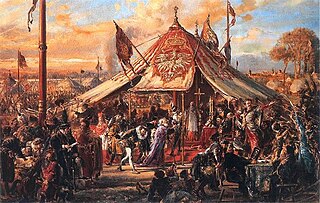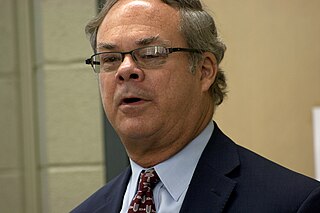Griswold v. Connecticut, 381 U.S. 479 (1965), was a landmark decision of the U.S. Supreme Court in which the Court ruled that the Constitution of the United States protects the liberty of married couples to buy and use contraceptives without government restriction. The case involved a Connecticut "Comstock law" that prohibited any person from using "any drug, medicinal article or instrument for the purpose of preventing conception". The court held that the statute was unconstitutional, and that its effect was "to deny disadvantaged citizens ... access to medical assistance and up-to-date information in respect to proper methods of birth control." By a vote of 7–2, the Supreme Court invalidated the law on the grounds that it violated the "right to marital privacy", establishing the basis for the right to privacy with respect to intimate practices. This and other cases view the right to privacy as "protected from governmental intrusion".

Hans-Hermann Hoppe is a German-American economist of the Austrian School, philosopher and political theorist. He is Professor Emeritus of Economics at the University of Nevada, Las Vegas (UNLV), Senior Fellow of the Ludwig von Mises Institute, and the founder and president of the Property and Freedom Society.

A Theory of Justice is a 1971 work of political philosophy and ethics by the philosopher John Rawls (1921–2002) in which the author attempts to provide a moral theory alternative to utilitarianism and that addresses the problem of distributive justice. The theory uses an updated form of Kantian philosophy and a variant form of conventional social contract theory. Rawls's theory of justice is fully a political theory of justice as opposed to other forms of justice discussed in other disciplines and contexts.

Normative generally means relating to an evaluative standard. Normativity is the phenomenon in human societies of designating some actions or outcomes as good, desirable, or permissible, and others as bad, undesirable, or impermissible. A norm in this sense means a standard for evaluating or making judgments about behavior or outcomes. "Normative" is sometimes also used, somewhat confusingly, to mean relating to a descriptive standard: doing what is normally done or what most others are expected to do in practice. In this sense a norm is not evaluative, a basis for judging behavior or outcomes; it is simply a fact or observation about behavior or outcomes, without judgment. Many researchers in science, law, and philosophy try to restrict the use of the term "normative" to the evaluative sense and refer to the description of behavior and outcomes as positive, descriptive, predictive, or empirical.

Golden Liberty, sometimes referred to as Golden Freedoms, Nobles' Democracy or Nobles' Commonwealth was a political system in the Kingdom of Poland and, after the Union of Lublin (1569), in the Polish–Lithuanian Commonwealth. Under that system, all nobles (szlachta), regardless of rank, economic status or their ethnic background were considered to have equal legal status and enjoyed extensive legal rights and privileges. The nobility controlled the legislature and the Commonwealth's elected king.

Non-heterosexual is a word for a sexual orientation or sexual identity that is not heterosexual. The term helps define the "concept of what is the norm and how a particular group is different from that norm". Non-heterosexual is used in feminist and gender studies fields as well as general academic literature to help differentiate between sexual identities chosen, prescribed and simply assumed, with varying understanding of implications of those sexual identities. The term is similar to queer, though less politically charged and more clinical; queer generally refers to being non-normative and non-heterosexual. Some view the term as being contentious and pejorative as it "labels people against the perceived norm of heterosexuality, thus reinforcing heteronormativity". Still others say non-heterosexual is the only term useful to maintaining coherence in research and suggest it "highlights a shortcoming in our language around sexual identity"; for instance, its use can enable bisexual erasure.
Substantive due process is a principle in United States constitutional law that allows courts to establish and protect certain fundamental rights from government interference, even if only procedural protections are present or the rights are unenumerated elsewhere in the U.S. Constitution. Courts have asserted that such protections come from the due process clauses of the Fifth and Fourteenth amendments to the U.S. Constitution, which prohibit the federal and state governments, respectively, from depriving any person of "life, liberty, or property, without due process of law". Substantive due process demarks the line between those acts that courts hold to be subject to government regulation or legislation and those that courts place beyond the reach of governmental interference. Whether the Fifth or Fourteenth Amendments were intended to serve that function continues to be a matter of scholarly as well as judicial discussion and dissent. In recent opinions, Justice Clarence Thomas has called on the Supreme Court to reconsider all of its rulings that were based on substantive due process.
The American Liberty League was an American political organization formed in 1934. Its membership consisted primarily of wealthy business elites and prominent political figures, who were for the most part conservatives opposed to the New Deal of President Franklin D. Roosevelt. The group emphasized private property and individual liberties. Its leader Jouett Shouse called on members to:
Self-ownership, is the concept of property in one's own body, expressed as the moral or natural right of a person to have bodily integrity which means to be the exclusive controller of one's own body including one's life, where 'control' means exerting any physical interference and 'exclusive' means including the right to enforce a ban on other people controlling it. Self-ownership is a central idea in several political philosophies that emphasize individualism, such as libertarianism, liberalism, and anarchism. Since the definition of property title includes the explicit ban of other people claiming property title over the same resource at the same time, the right to control or interfere with one's own body in any arbitrary way is secured.

Liberty is the ability to do as one pleases, or a right or immunity enjoyed by prescription or by grant. It is a synonym for the word freedom.
Discourse ethics refers to a type of argument that attempts to establish normative or ethical truths by examining the presuppositions of discourse. The ethical theory originated with German philosophers Jürgen Habermas and Karl-Otto Apel, and variations have been used by Frank Van Dun and Habermas' student Hans-Hermann Hoppe.

Joseph Raz was an Israeli legal, moral and political philosopher. He was an advocate of legal positivism and is known for his conception of perfectionist liberalism. Raz spent most of his career as a professor of philosophy of law at the University of Oxford associated with Balliol College and was latterly a part-time professor of law at Columbia University Law School and a part-time professor at King's College London. He received the Tang Prize in Rule of Law in 2018.
In international relations (IR), constructivism is a social theory that asserts that significant aspects of international relations are shaped by ideational factors. The most important ideational factors are those that are collectively held; these collectively held beliefs construct the interests and identities of actors.
Popular sovereignty is a doctrine rooted in the belief that each citizen has sovereignty over themselves. Citizens may unite and offer to delegate a portion of their sovereign powers and duties to those who wish to serve as officers of the state, contingent on the officers agreeing to serve according to the will of the people. In the United States, the term has been used to express this concept in constitutional law. It was also used during the 19th century in reference to a proposed solution to the debate over the expansion of slavery. The proposal would have given the power to determine the legality of slavery to the inhabitants of the territory seeking statehood, rather than to Congress.

Douglas Ollivant is a Senior National Security Studies Fellow at the New America Foundation as well as a Managing Partner at Mantid International. Most recently, Ollivant was a senior counterinsurgency (COIN) advisor to Regional Command East, as part of the International Security Assistance Force COIN Advisory and Assistance Team. He served as Director for Iraq on the National Security Council under the Bush and Obama administrations. A retired U.S. Army officer, he has served two tours in the Iraq War, first as the operations officer for the First Battalion, Fifth Cavalry Regiment during OIF II and later as the Chief of Plans for Multi-National Division-Baghdad during the “Surge”, leading the team which wrote the Baghdad Security Plan.
Liberalism is a political and moral philosophy based on the rights of the individual, liberty, consent of the governed, political equality and equality before the law. Liberals espouse various views depending on their understanding of these principles. However, they generally support private property, market economies, individual rights, liberal democracy, secularism, rule of law, economic and political freedom, freedom of speech, freedom of the press, freedom of assembly, and freedom of religion. Liberalism is frequently cited as the dominant ideology of modern history.

Elon Galusha was a lawyer and Baptist preacher who was active in reform activities of the early 19th century in New York. He was the son of Jonas Galusha, the 6th and 8th governor of Vermont. He also adopted and promoted the teachings of William Miller.

Douglas B. Rasmussen is professor of philosophy at St. John's University, where he has taught since 1981.

Douglas J. Den Uyl is vice president of educational programs at Liberty Fund.

The Demands of Liberal Education is a 1999 political philosophy book by Meira Levinson that establishes a liberal political theory of children's education that fits the mutual needs of the state and its diverse citizenry. She writes that the intent of a liberal education—an education that follows from a liberal society's values—is to maximize the autonomy of individual children through increasing their capacity for liberty. Levinson argues autonomy as a right to children. The book, published by Oxford University Press, aims to address a lacuna between educational policy and liberal political theory.












